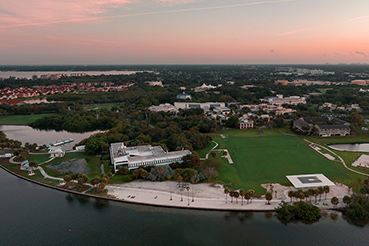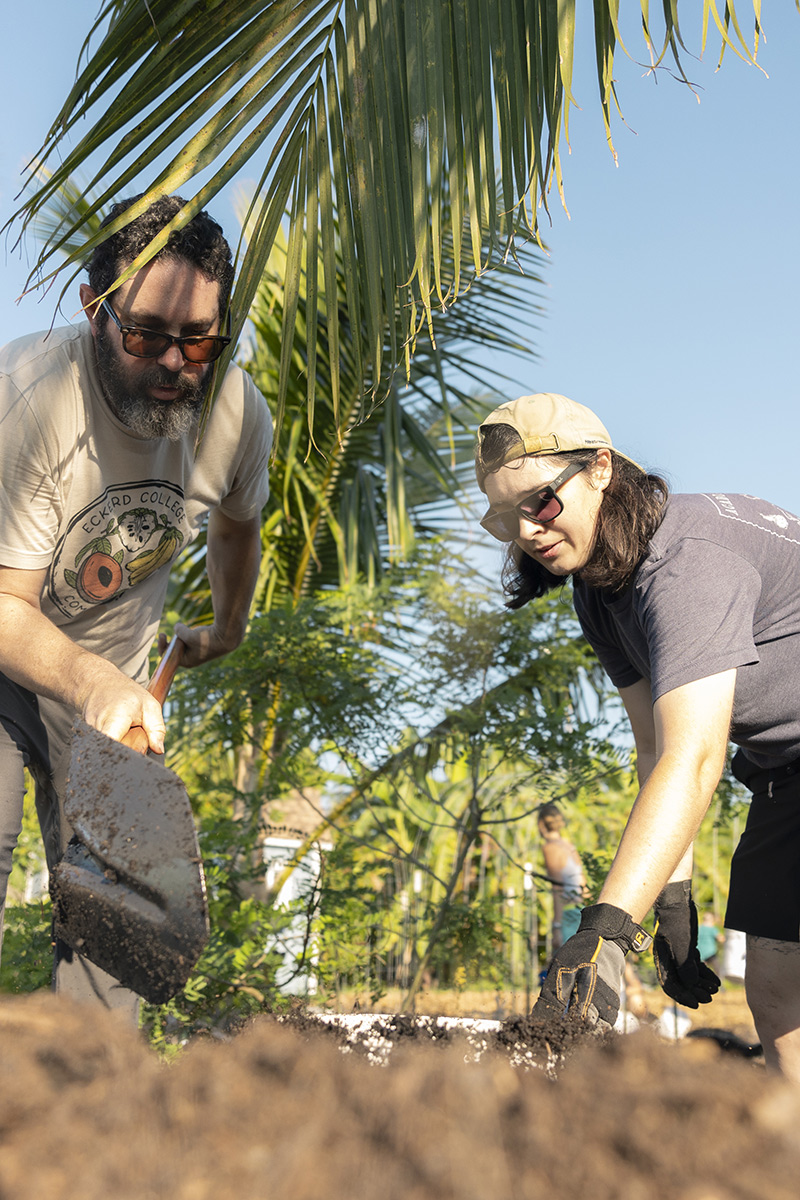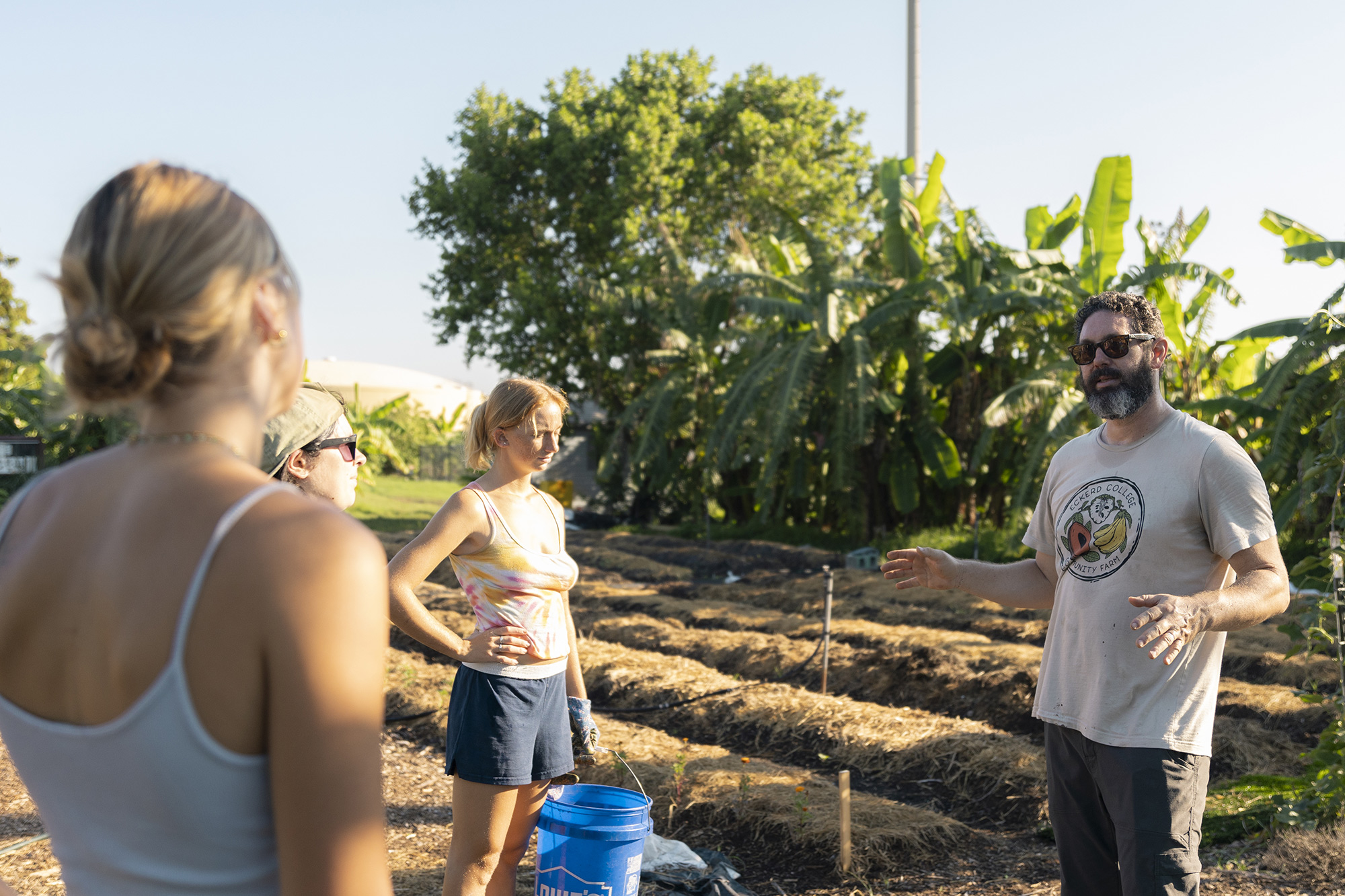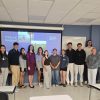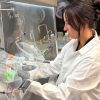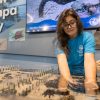In most cases, academic minors are housed within a given discipline, explains Nathan Andersen, Ph.D., professor of philosophy and film studies at Eckerd College. But not this time.
“This is a new program that allows faculty across disciplines to work together on shared issues and concerns that become the focus for distinctive interdisciplinary minors,” Andersen adds. “The first two such minors are ‘technology and humanity,’ focused on the ways that new digital technologies such as artificial intelligence are impacting society, and then ‘food: identity and culture,’ focused on what we eat, how we eat and how food helps to shape who we are.”
That is the essence of Eckerd’s new Interdisciplinary Problems Minor program, which offers students a way to focus their learning on issues they care about, and to consider those issues from many different perspectives—instead of learning a single method and applying it to lots of different issues. Andersen and Davina C. Lopez, Ph.D., professor of religious studies, currently serve as the program’s coordinators.
In the food: identity and culture problem minor, students will explore food as an entry point to navigating issues around community identity, production and sustainability, and social and cultural differences. In the technology and humanity problem minor, students will explore the impact of digital technologies on our world—from innovative ways of living to social inequalities and misinformation.
“The idea is that new changes in digital technologies, the rise of the internet, and the rise of AI are things that affect all of us,” Andersen says. “Technology affects the humanities. Technology affects the sciences. Technology affects how we create art. And so we thought all of us across the campus have an interest in understanding what kinds of changes are taking place and how they are affecting us as a society … We thought we’d find ways to empower faculty to talk about these kinds of issues from their different disciplinary approaches.”
“It’s a different way of thinking about our curriculum,” Lopez says. “Very often, I think we see our curriculum primarily as an introduction to a discipline. But the world isn’t organized according to academic disciplines. So when students find an entry point, it often comes through an issue or an interest or a question. And so we’re fronting that in this program.
“Do you have an interest, a question or a problem you want to work on? We have the tools to help you get started in working on that, and in doing so from a wide variety of perspectives.
“I’d say it’s problem-based, student-focused, issue-centered and really kind of a value-fronting way to engage with our curriculum,” Lopez adds. “There are plenty of science and technology studies programs across the country. But there aren’t a lot of programs that say to students, ‘Are you interested in or concerned about science and technology? Do you want to work with some other students who are interested in and concerned about that, and also take courses from a variety of faculty who are thinking critically about that, so that you can go out into the world afterwards in a world full of jobs that may not exist yet, or problems that we don’t know about yet, and you’ll be able to think about something in a nimble way?’”
Using a three-year grant from the Arthur Vining Davis Foundations, Lopez and Andersen have been able to prepare Eckerd faculty to offer the courses. “One distinctive aspect of this program that sets it apart from other programs like it at other liberal arts colleges is that we’ve taken the time to bring faculty together and have them take a class together,” Lopez explains. “So they’ve been learning together for two years in a row.”
The new minors program was added to the College’s Course Catalog last June, so students are able to declare the minors. “Students have already been taking courses across the curriculum that count for these various programs,” Lopez says. “The one piece that is not yet implemented is the Ways of Knowing course, which is going to start in the spring of 2025.”
That course is described in the College catalog as one where students and faculty “engage with complex real-world issues and problems that require consideration beyond singular expertise, collaboration across disciplines and majors, and a collective empathetic imagination.”
An academic minor is an option available to all Eckerd students, but it isn’t a degree requirement. For a complete list of Eckerd’s 55 other established minors, visit Minors–Eckerd College.

